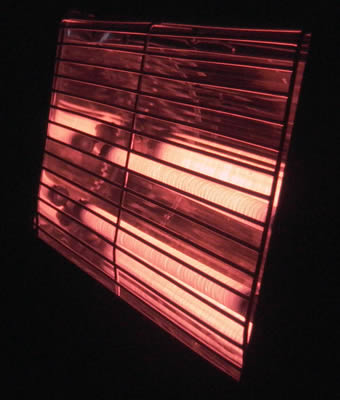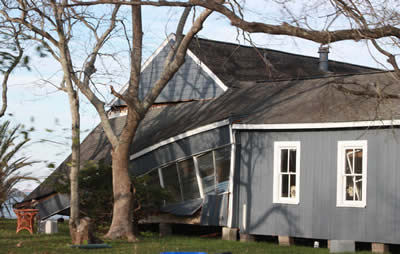Portable Heating
While most homes already have a main source of heat for the winter, there are times when an additional portable heater is needed for backup warmth or to compliment the existing system.
Likewise, a home's heating system is unlikely to extend to an outbuilding such as a detached garage, workshop or shed and these spaces need to be heated too, which is where a portable unit comes into its own.
Perhaps you've been considering adding to your home's arsenal of winter temperature management appliances by making a new purchase of a portable unit that is fuelled by gas for example, or an electric unit of some description. The use you intend to put it to will almost certainly dictate the type you settle on and this article looks at the alternatives and explains the reasoning behind why you should opt for one or the other type.
Portable Electric Heaters
 When heating with electricity, you have to remember that the appliance will never be completely portable since it must be plugged into a mains wall socket to get its power. That rules this type of device out from being used in outbuildings that do not have a mains supply or in situations where you're away from home or where you don't have access to an electricity outlet such as when camping or RV'ing in the wilderness.
When heating with electricity, you have to remember that the appliance will never be completely portable since it must be plugged into a mains wall socket to get its power. That rules this type of device out from being used in outbuildings that do not have a mains supply or in situations where you're away from home or where you don't have access to an electricity outlet such as when camping or RV'ing in the wilderness.
If you just need some additional space heating, then an electrically powered model will be just fine to provide that additional warmth where you need it in the home, garage or workplace. However, it should be remembered that energy costs are rising and this is not the most economical way of providing that additional warmth no matter how convenient and clean it may be.
Portable Gas Heaters
A much more economical way to provide additional warmth in your home, outbuilding or workplace is to opt for a gas fuelled free standing or portable unit. This is a truly portable way to get the heat you need to the place you need it regardless of whether there is an electricity outlet nearby or not.
These units are relatively inexpensive to buy and spare canisters of gas are readily available at hardware stores. These gas cylinders come in varying sizes and can be stored for prolonged periods making them the perfect backup for those times when the power goes out (blackouts) or for simply providing additional heat when it's needed.
Vented or Unvented
Propane gas fuelled devices come in two main forms which are the vented and the non-vented varieties. Vented units are generally larger and capable of producing more heat but the downside is because they need to be vented via a fixed flue to the outside, their portability is limited.
Unvented propane-fired heaters on the other hand are more versatile and completely moveable as they carry their own fuel source inside the unit and are on wheels making them easy to push from room to room as needed. The burn efficiency of ventless heating units is very high meaning extremely low levels of emissions are released into the room, although it is recommended that some ventilation (an open door and/or cracked open window) is always provided to prevent a build-up over time.
Disaster Preparedness
 Another really important benefit of having one or more portable gas heaters available for immediate use is during times of power outages. This is especially relevant if you live in an area that is prone to adverse weather such as hurricanes that can knock out power lines or worse, destroy buildings and livelihoods.
Another really important benefit of having one or more portable gas heaters available for immediate use is during times of power outages. This is especially relevant if you live in an area that is prone to adverse weather such as hurricanes that can knock out power lines or worse, destroy buildings and livelihoods.
If the weather is cold and you have no power to your home, it can get very uncomfortable very quickly if you don't have a backup source of heat that is independent of the electricity grid. Having a gen-set to fall back on is not something all households have in their garage or shed, let alone a supply of fuel to run it for several days.
A propane-fuelled portable heater can literally be a life saver in emergency situations. Keeping several days supply of gas cylinders does not take up a great deal of space in the garage or storage shed and can provide a family with essential warmth when other sources are down.
Other Heating Fuels
There are other alternatives for fuelling a portable heater such as kerosene or in some cases solid fuel (coal or wood). However, these are becoming ever less popular in town or city homes, although you'll still find them used extensively in remote homesteads and off-grid homes.
Kerosene heaters can be messy and produce an unpleasant smell while they represent a higher risk of causing fires because of the volatile nature of the fuel itself. They still have their uses, such as in greenhouses and garden sheds where there is some ventilation to allow the smell to disperse and where the fire risk is lower.
Solid fuelled fires tend to be fixed because they are generally heavy (most are made from cast iron), so are rarely portable. They also need to be vented via a fixed chimney or flue to the outside to prevent the build-up of smoke and other noxious gases that are produced as part of the combustion process of that fuel.
Conclusion
The most effective and economical form of portable heating for homes in suburban or urban settings with several different and important applications is certainly the propane fuelled variety. Their versatility when it comes to portability and independent use is unparalleled, making them a wise choice for a backup or space heating solution for homes, outbuildings and workplaces.
[Back to TOP]